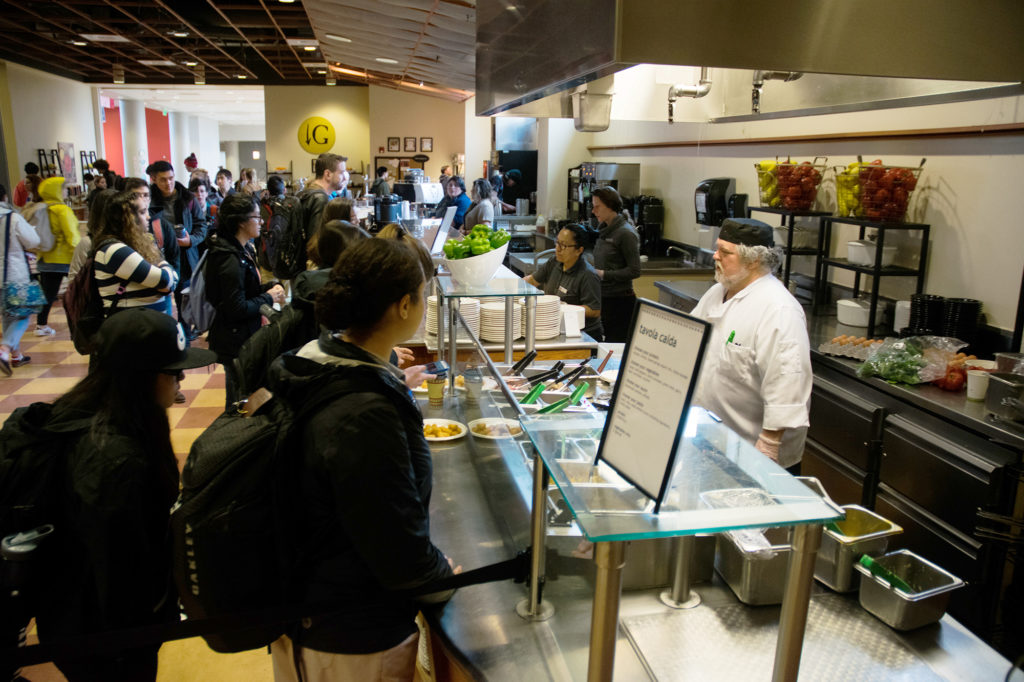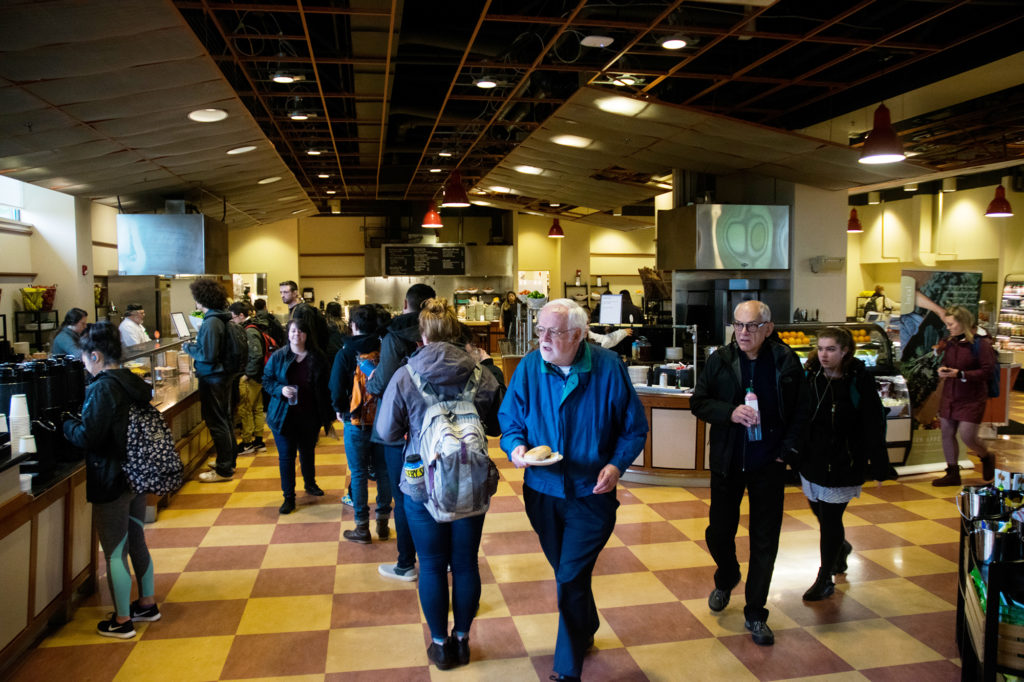Bon Appetit caters to six different locations on campus, all of which are designed to offer a meal or a snack that’s accessible to multiple kinds of dietary needs. For instance, there is always at least one vegan, vegetarian, or gluten-free option available at all these campus dining locations. With a growing student body of over 4,500 students there is also an increasing population of students with specific dietary preferences.

Students are concerned about the decreasing number of vegan options offered at campus dining locations.
Michaela Abel, senior humanities for teaching major, has Celiac’s disease and had to cancel her meal plan during her sophomore year due to a lack of gluten-free options at Seattle U’s main cafeteria, Cherry Street Market.
“It means I’m severely allergic to gluten, it’s not just a dietary choice,” Abel said.“They definitely had gluten- free options, but they weren’t separate from the other ingredients, so it wasn’t absolutely gluten-free…They would be cooked on the same surfaces as other [gluten-containing] foods. I would get sick a lot,and then I ended up having to cancel my meal plan.”
Abel said she was lucky to have a friend with a kitchen she could use as an alternative to eating on campus.
Jay Payne, the General Manager of Bon Appetit at Seattle U, said circumstances in on-campus kitchens sometimes make it difficult to ensure that food is not cross-contaminated.
“When it comes to gluten, we can’t make claims about gluten- free environment based on FDA guidelines. We’re going to work really hard to ensure that when somebody comes to us and says that they’re Celiac, that we’re not going to cross contaminate,” Payne said. “But we don’t have a dedicated kitchen or a dedicated grill, some of the larger kitchen equipment can’t be made perfect for those situations.”
Despite what may seem like lackluster attitudes toward cross- contamination in C-Street, the Director of Nutrition and Wellness for Bon Appetit Terri Brownlee said there is a online mandatory training course for all managers that detail how to deal with issues similar to Abel’s.
“There’s a whole module dedicated to food allergens and Celiac Disease, there’s one dedicated to using the meat without gluten, as well as vegetarian and vegan, and so on. The managers go through that as a baseline, and then there’s a refresher course that reviews everything once a year,” Brownlee said.
Brownlee also said the company works to help students on an individualized basis.
“When we have the opportunity to talk with students about their individual needs, we always try and establish a plan, but also let them know that this plan is not set in stone, and that we’re flexible,” Brownlee said. “So if something about the plan is not working, all they have to do is speak up and bring ideas to us. Safety is the number-one priority, but we also want people to feel really happy and satisfied with what they’re getting.”
Yet Abel said that although Bon Appetit was willing to meet multiple times, their discussions were unproductive.
“They would just say that they would do it [gluten-free accommodations], but then when I would actually go there, the employees hadn’t been communicated to, so there was no follow up for what I had talked to them about,” Abel said. “There was about a good quarter where I was paying for both C-Street and all of my other food that I was not getting at C-street.”
Abel said she feels like many campus eateries assume Gluten-free is a personal, dietary decision, rather than a serious allergy.
“A lot of people do have these allergies and sensitivities, so it is more serious than they think,” Abel said. “One of my friends was dairy-free, and the Bistro would mislabel things. They would say it was dairy free and it wasn’t, and they’d get sick.”
Regarding the labeling process, Payne said, “It’s not perfect.”
C-Street employee and junior social work major Alexis Bogan said the role of ensuring accurate labeling allergens and special dietary foods falls into the responsibilities of the manager.
Regarding the cross-contamination and keeping utensils separate at different stations, Bogan said, “From what I’ve seen [the chefs] usually keep them pretty separate.” Bogan’s observations are more relevant to those with plant-based diets.
“I think there’s a shortage of vegan and vegetarian options, I think more so for vegan options,” Bogan said. “At global or other stations, it’s usually a protein option, and then like only one vegetarian option, and sometimes that’s not vegan.”
Bogan also mentioned how frequently vegan foods run out. While there is a dissonance between Bon App and their clientele regarding what dietary restrictions look like, Payne said the company is working hard to make sure students have enough options.“We really depend on communication between people with food restrictions and our management team to find out whether or not that’s working for them,” Payne said, “it depends heavily on interacting with people to ensure that we’re meeting their needs.”
Maddy may be reached at
mmesa@su-spectator.com









